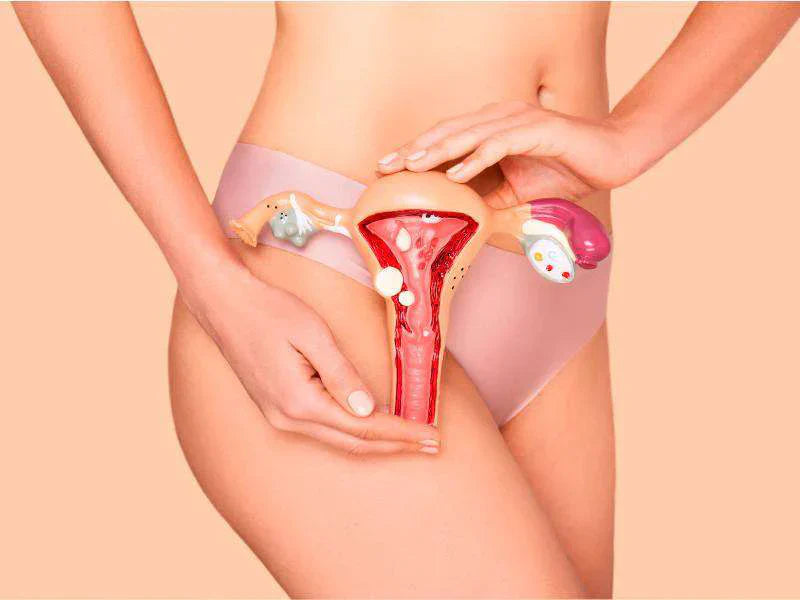You walk into a consultation for what seems like a slight dizzy spell. “Nothing serious,” you think. Yet the blood pressure monitor tells a different story. Since when did your blood pressure start working against you? There’s no family history, you haven’t drastically changed your diet, and still, something isn’t quite right. Then, your doctor mentions two words that may seem unrelated but are more connected than you realise: menopause and hypertension.
If you’re not fully familiar with the subject, this is the moment to explore how these two are linked, and more importantly, what you can do to feel well again.
What is the relationship between menopause and hypertension?
As women enter this natural stage, certain biological changes occur that are directly tied to increased blood pressure, something once thought to be less common at younger ages.
Put simply, the gradual decline in female hormones disrupts the balance of the circulatory system. This, in turn, often leads to higher blood pressure readings and, consequently, an elevated cardiovascular risk in menopause (1).
How do hormonal changes affect vascular tension?
Keep in mind that falling oestrogen levels have a direct impact on the blood vessels. As these hormones drop, arteries become less flexible.
This increased stiffness plays a key role in hypertension in menopause. At the same time, the delicate balance between other regulatory mechanisms shifts, leading to higher peripheral resistance (2).
Menopause and hypertension: risk factors
Although hormonal decline is a significant trigger, several other factors can increase the likelihood of experiencing both menopause and hypertension (3,4):
-
Genetics and lifestyle choices.
-
A sedentary routine, such as spending long hours sitting down, combined with a diet high in salt or saturated fats.
-
Ongoing stress.
-
Pre-existing conditions such as being overweight or having diabetes.
Does hormone therapy affect high blood pressure?
The link between these two conditions is still widely debated. For some women, hormone therapy can help ease menopause and hypertension symptoms. By restoring hormonal balance, it may exert a positive effect on the vascular system.
However, in certain cases, hormone therapy has also been associated with slightly higher blood pressure. The outcome isn’t uniform and often depends on factors such as:
-
The prescribed dose.
-
The type of hormones used.
-
The length of treatment.
For this reason, never self-medicate. Always seek guidance from specialists who can give you the right instructions and ensure proper follow-up. This way, you’ll be able to weigh the benefits and risks of hormone therapy for effective blood pressure control during menopause (5).
The link between weight gain, menopause and hypertension
Have you noticed your weight creeping up lately? This is a very common experience. Metabolism tends to slow down, and fat distribution often shifts, particularly around the abdomen. This change impacts blood pressure, as fat tissue produces inflammatory substances that disrupt vascular function.
It’s also worth noting that excess weight can worsen other conditions. That’s why a diet for menopause with hypertension can help reduce strain on the circulatory system and keep blood pressure under control (6).
Menopause and hypertension: recommendations for control

Fortunately, there are practical steps you can take. By following an effective strategy, you can move through this stage more healthily. Key recommendations include (7):
-
Adopt a balanced diet low in salt and rich in fruits and vegetables.
-
Stay physically active with moderate, consistent exercise to protect heart health and maintain a stable weight.
-
Manage stress with relaxation techniques or seek psychological support if needed.
-
For example, attend regular medical check-ups.
-
Stay informed. Make use of books for ladies, guides, and resources designed to support women’s health.
Why does blood pressure rise after menopause?
As oestrogen levels drop, both vasodilator and antioxidant mechanisms lose strength. This leads to stiffer arteries and, as a result, higher blood pressure.
Other metabolic changes also come into play, increasing susceptibility. In short, the end of menstruation marks a turning point in circulatory health (8,9).
Sex hormones and cardiovascular risk after menopause
As we’ve seen, the definitive end of menstruation often brings a significantly higher risk of cardiovascular issues. So, what can you do about it? Two essential and practical actions are adjusting your lifestyle and scheduling regular medical follow-ups.
Without doubt, menopause and hypertension walk hand in hand, bringing changes that affect your body, your emotions, and your everyday life. Yet you are not alone.
For instance, at Issviva, you’ll find thoughtful solutions designed to support your wellbeing at every stage. For this reason, we invite you to explore our products and discover how they can accompany you through this transition.
Referencias
-
Mayo Clinic. Menopause and high blood pressure: what relationship exists between the two? [Internet]. USA: Mayo Clinic; 2025 [cited 2025 Sep 2]. Available from: https://www.mayoclinic.org/es/diseases-conditions/high-blood-pressure/expert-answers/menopause-and-high-blood-pressure/faq-20058406
-
Samargandy S, Matthews KA, Brooks MM, Barinas-Mitchell E, Magnani JW, Thurston RC, El Khoudary SR. Trajectories of Blood Pressure in Midlife Women: Does Menopause Matter? [Internet]. USA: National Institutes of Health (NIH); 2022 [cited 2025 Sep 2]. Available from: https://pmc.ncbi.nlm.nih.gov/articles/PMC8814466
-
Gatta F. A complete guide on menopause [Internet]. USA: WebMD; 2025 [cited 2025 Sep 2]. Available from: https://www.webmd.com/menopause/menopause-basics
-
Ghazi L, Annabathula RV, Bello NA, Zhou L, Stacey RB, Upadhya B. Hypertension Across a Woman’s Life Cycle [Internet]. USA: National Institutes of Health (NIH); 2022 [cited 2025 Sep 2]. Available from: https://pmc.ncbi.nlm.nih.gov/articles/PMC9893311
-
Ferreira L, de Andrade G, Domingues M, Ferreira I, Gabrielli L, C Almeida, Ml Aquino E, Aras Júnior R. Effect of hormone therapy on blood pressure and hypertension in postmenopausal women: a systematic review and meta-analysis [Internet]. USA: National Institutes of Health (NIH); 2024 [cited 2025 Sep 2]. Available from: https://pubmed.ncbi.nlm.nih.gov/38688468
-
Kodoth V, Scaccia S, Aggarwal B. Adverse Changes in Body Composition During the Menopausal Transition and Relation to Cardiovascular Risk: A Contemporary Review [Internet]. USA: National Institutes of Health (NIH); 2022 [cited 2025 Sep 2]. Available from: https://pmc.ncbi.nlm.nih.gov/articles/PMC9258798
-
Clement L. Support your heart health through menopause [Internet]. Reino Unido: National Health Service (NHS); 2023 [cited 2025 Sep 2]. Available from: https://www.bartshealth.nhs.uk/news/support-your-heart-health-through-menopause-15867
-
Williamson L. The connection between menopause and cardiovascular disease risks [Internet]. USA: American Heart Association; 2023 [cited 2025 Sep 2]. Available from: https://www.heart.org/en/news/2023/02/20/the-connection-between-menopause-and-cardiovascular-disease-risks
-
Kan Y, Peng YL, Zhao ZH, Dong ST, Xu YX, Ma XT, Liu XL, Liu YY, Zhou YJ. The impact of female sex hormones on cardiovascular disease: from mechanisms to hormone therapy [Internet]. USA: National Institutes of Health (NIH); 2024 [cited 2025 Sep 2]. Available from: https://pmc.ncbi.nlm.nih.gov/articles/PMC11224657
You May Also Like

JOIN US AND GET 10% OFF
Sign up to our newsletter to access free resources, advice and support.















